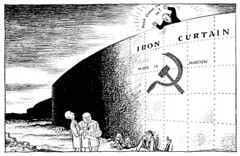| 10305622383 | Authority | the power or right to give orders, make decisions, and enforce obedience. |  | 0 |
| 10305622384 | Audience | the assembled spectators or listeners at a public event, such as a play, movie, concert, or meeting. |  | 1 |
| 10305622721 | Backing | support or help |  | 2 |
| 10305622722 | Assertion | a confident and forceful statement of fact or belief |  | 3 |
| 10305625082 | Means vs. Ends | carried out for the sole purpose of achieving something else |  | 4 |
| 10305631509 | Deductive Reasoning | the process of reasoning from one or more statements to reach a logical certain conclusion |  | 5 |
| 10305631772 | Inductive Reasoning | method of reasoning in which the premises are viewed as supplying some evidence for the truth of the conclusion |  | 6 |
| 10305631773 | Alliteration | the occurrence of the same letter or sound at the beginning of adjacent or closely connected words |  | 7 |
| 10305632038 | Tone | the general character or attitude of a place, piece of writing, situation etc |  | 8 |
| 10305632039 | Diction | the choice and use of words and phrases in speech or writing |  | 9 |
| 10305646206 | Denotation | the literal or primary meaning of a word, i contrast to the feelings or ideas that the word suggests |  | 10 |
| 10305646207 | Connotation | an idea or feeling that a word invokes in addition to its literal or primary meaning |  | 11 |
| 10305647074 | Colliquial | used in ordinary or familiar conversation; not formal or literary |  | 12 |
| 10305647350 | Formal | following rules or customs, often in an exact and proper way |  | 13 |
| 10305647632 | Informal | Casual, not in accord with prescribed regulations |  | 14 |
| 10305647633 | Concrete | existing in a material or physical form; real or solid; not abstract. |  | 15 |
| 10305650856 | Abstract | existing in thought or as an idea but not having a physical or concrete existence. |  | 16 |
| 10305673118 | Detail | an individual feature, fact, or item. |  | 17 |
| 10305673119 | Mood | a temporary state of mind or feeling. |  | 18 |
| 10305673534 | Imagery | visually descriptive or figurative language, especially in a literary work. |  | 19 |
| 10305673535 | Setting | the place or type of surroundings where something is positioned or where an event takes place. |  | 20 |
| 10305673832 | Figurative Language | Language that cannot be taken literally since it was written to create a special effect or feeling. |  | 21 |
| 10305673833 | Allusion | an expression designed to call something to mind without mentioning it explicitly |  | 22 |
| 10305674159 | Similie | A comparison using like or as |  | 23 |
| 10305674560 | Metaphor | a word or phrase applies to an object when it is not literally applicable |  | 24 |
| 10305674561 | Personification | the giving of human qualities to an animal, object, or idea |  | 25 |
| 10305674764 | Hyperbole | exaggerated statements or claims not meant to be taken literally. |  | 26 |
| 10305676355 | Understatement | the presentation of something as being smaller, worse, or less important than it actually is. |  | 27 |
| 10305677184 | Paradox | A figure of speech or statement that seems contradictory but actually contains a hidden truth |  | 28 |
| 10305697174 | Verbal Irony | A figure of speech in which what is said is the opposite of what is meant |  | 29 |
| 10305697175 | Analogy | comprised of two different pairs of words |  | 30 |
| 10305697813 | Anecedote | A short and amusing or interesting story about a real incident or person |  | 31 |
| 10305697836 | Metonymy | the substitution of the name of an attribute or adjunct for that of the thing meant |  | 32 |
| 10305698590 | Synecdoche | a part is made to represent a whole or vice versa |  | 33 |
| 10305698608 | Rhetorical Modes/Modes of Discourse | describe the variety, conventions and purposes of the major kinds of language-based communication |  | 34 |
| 10305701378 | Exemplification | Providing examples in service of a point. |  | 35 |
| 10305702236 | Cause/effect | An action and its results are explained |  | 36 |
| 10305702470 | Description | a spoken or written representation or account of a person, object, or event |  | 37 |
| 10305703029 | Process Analysis | writer explains step by step how something is done or how to do something |  | 38 |
| 10305703030 | Narration | the telling of a story in fiction, nonfiction, poetry, or drama; one of the four modes of discourse |  | 39 |
| 10305704002 | Comparison/Contrast | compare- to find/tell similarities
contrast-to find/tell differences |  | 40 |
| 10305704003 | Exposistion | a comprehensive description and explanation of an idea or theory. |  | 41 |
| 10305704442 | Argumentation | the action or process of reasoning systematically in support of an idea, action, or theory |  | 42 |
| 10305705032 | Repetition | the action of repeating something that has already been said or written. |  | 43 |
| 10305705033 | Point of view | a particular attitude or way of considering a matter. |  | 44 |
| 10305705477 | First Person | "I" and "Me" standpoint. Personal perspective. |  | 45 |
| 10305734904 | Second Person | Told from the reader's point of view, using "you" |  | 46 |
| 10305734905 | Third Person | Narrator is not a character, but sees the world through only one character's eyes and thoughts
Point of view in which the narrator is outside of the story - an observer |  | 47 |
| 10305735577 | Subjective | based on or influenced by personal feelings or tastes, or opinions |  | 48 |
| 10305735578 | Objective | not influenced by personal feelings or opinions in considering and representing facts |  | 49 |
| 10305736332 | Syntax | The arrangement of words and phrases to create well-formed sentences in a language. |  | 50 |
| 10305736333 | Anaphora | the use of a word referring to or replacing a word used earlier in a sentence, to avoid repetition |  | 51 |
| 10305736962 | Antithesis | a person or thing that is the direct opposite of someone or something else |  | 52 |
| 10305736974 | Asyndeton | the omission or absence of a conjunction between parts of a sentence. |  | 53 |
| 10305737480 | Polysyndenton | the deliberate use of multiple conjunctions between coordinate phrases, clauses, or words |  | 54 |
| 10305738970 | Parallel Sentence | repetition of a chosen grammatical form within a sentence |  | 55 |
| 10305739544 | Periodic Sentence | A sentence that builds toward and ends with the main clause |  | 56 |
| 10305739545 | Rhetorical Question | a statement that is formulated as a question but that is not supposed to be answered |  | 57 |
| 10305740408 | Inverted Syntax | where explanations are formed |  | 58 |







































































































































































































